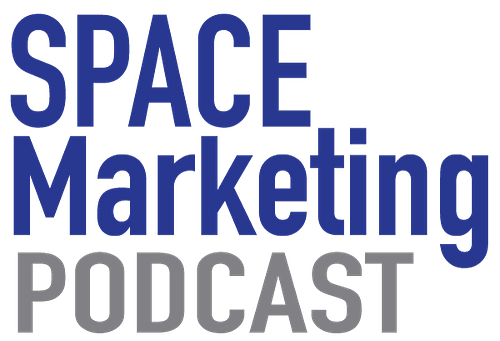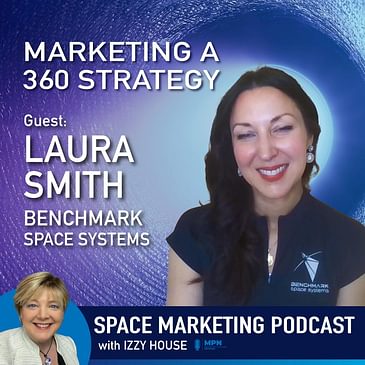Join Izzy as she chats with Laura Smith, Marketing Manager at Benchmark Space Systems about developing a 360 strategy at a tradeshow and how to get the most exposure and connection at a tradeshow to develop deep relationships with clients.
GUEST:
Laura Smith
Marketing Manager
Benchmark Space Systems
https://www.benchmarkspacesystems.com/
CHAPTERS:
01:20 Introduction to Laura Smith
02:38 Laura received a copy of Izzy’s Space Marketing book
03:51 Community of Marketers
04:41 Marketing equals storytelling
06:37 Spiritual side of space
08:47 Climate Crisis - we need space to see it in order to fix it
10:08 Do space responsibly and do it right
11:33 Laura’s marketing position at Benchmark Space Systems - green technology in propulsion
12:31 Optimizing the mission and providing mission services for a satellite’s full lifecycle
15:13 Creating a business around your audience and their needs
17:35 Trade shows and conferences as a 360 marketing strategy
18:42 Thinking about the long games, building trust, messaging, pre-event activities, news releases, speaking, live demos, and sponsoring
22:56 Creating a fun experience and developing a relationship with attendees
24:11 Training and preparing the staff for speaking and presentation
24:59 Post-event debriefing and developing the ROI for the event
25:42 Giving your team the tools to develop great relationships
28:15 Marketing Challenges - It is OK to say you do not know
29:32 Marketing Challenge for space - Creating visuals of in-orbit products and homogenization of the visuals across the space brands
31:17 Trust is everything
32:06 Marketing in space versus other industries
32:52 Encouraging new conversations
35:24 Space in the next 10-20 years - more problems solvers and more voices
37:58 Final Question
40:17 See Change Sessions bringing diverse thought conversation
- #spacemarketing
- #spacebusiness
- #commercialspace
- #marketing
ABOUT IZZY
Izzy's website - https://izzy.house
Author of Space Marketing: Competing in the new commercial space industry AND Space Marketing: Spaceports on Amazon and Audible - https://bit.ly/Space-Marketing
Podcast host for Space Marketing Podcast - https://spacemarketingpodcast.com
Organizer for Space for Kentucky Roundtable - https://spaceforkentucky.com
Learn more about your ad choices. Visit megaphone.fm/adchoices




